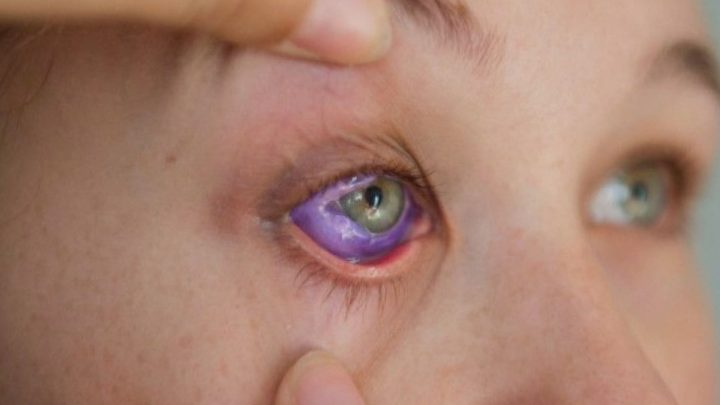Kevin Leippi has been a professional tattoo artist for 16 years. He has owned and operated Traditional Tattoo in Regina for the past 12.

In that time, Leippi has never come across someone looking for an eye tattoo. Known as scleral tattooing, it is the practice of tattooing the white part of the human eyeball — done with a hypodermic needle.
“I would think it’s a highly dangerous procedure, poking someone in the eye with a hypodermic needle… possibly taking out their eyesight? No thanks,” Leippi said.
Even if Leippi wanted to pick up the practice, he would not be allowed to.
The Saskatchewan government recently introduced legislation banning cosmetic eye tattooing and the implantation of eye jewelry — joining only Ontario and Manitoba as the provinces to do so.
“Saskatchewan made the decision to ban scleral tattooing and eye jewelry because obtaining this type of body modification is very risky and can result in serious complications including significant inflammation, infection, damage to vision, blindness, and eye loss,” the Ministry of Health told Global News in an emailed statement.

Get weekly health news
It’s a decision supported by the Saskatchewan Association of Optometrists (SAO) who, like the province, believe the risk outweighs the reward.
“This new legislation is a proactive decision to protect the public’s vision and prevent unnecessary cases of injury and blindness,” SAO president Dr. Nathan Knezacek said in a statement.
Proactive yes, but the SAO said optometrists and ophthalmologists are “dealing with an increase of patients with complications due to eyeball tattooing and eye jewelry.”
SAO said complications include inflammation, retinal toxicity, extreme pain, vision loss and surgical removal of the eye.
Leippi said he agrees with the ban, believing they are practices tattoo artists should avoid.
“I would think any normal self-respecting tattoo artist, probably doesn’t even partake in anything like that,” Leippi said.
“It’s not really an art form, I wouldn’t call it. It’s more of a body modification.”






Comments